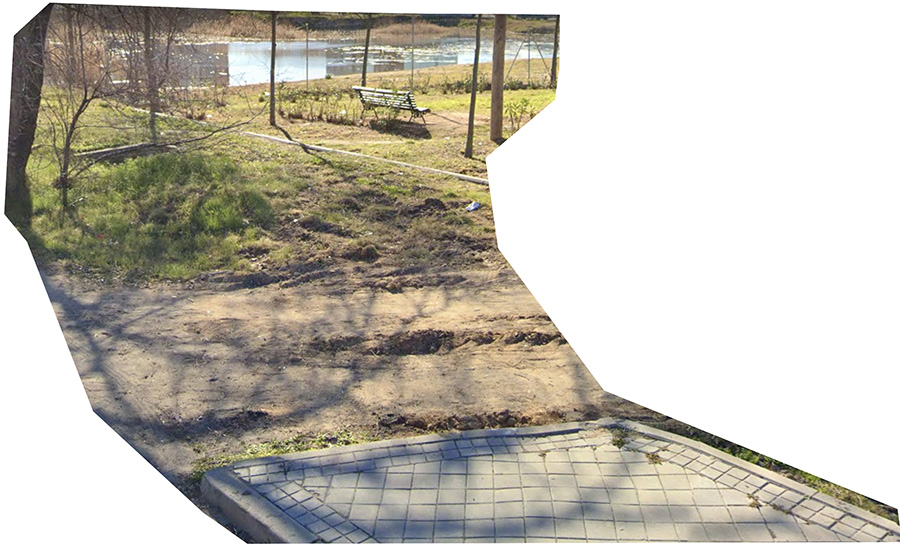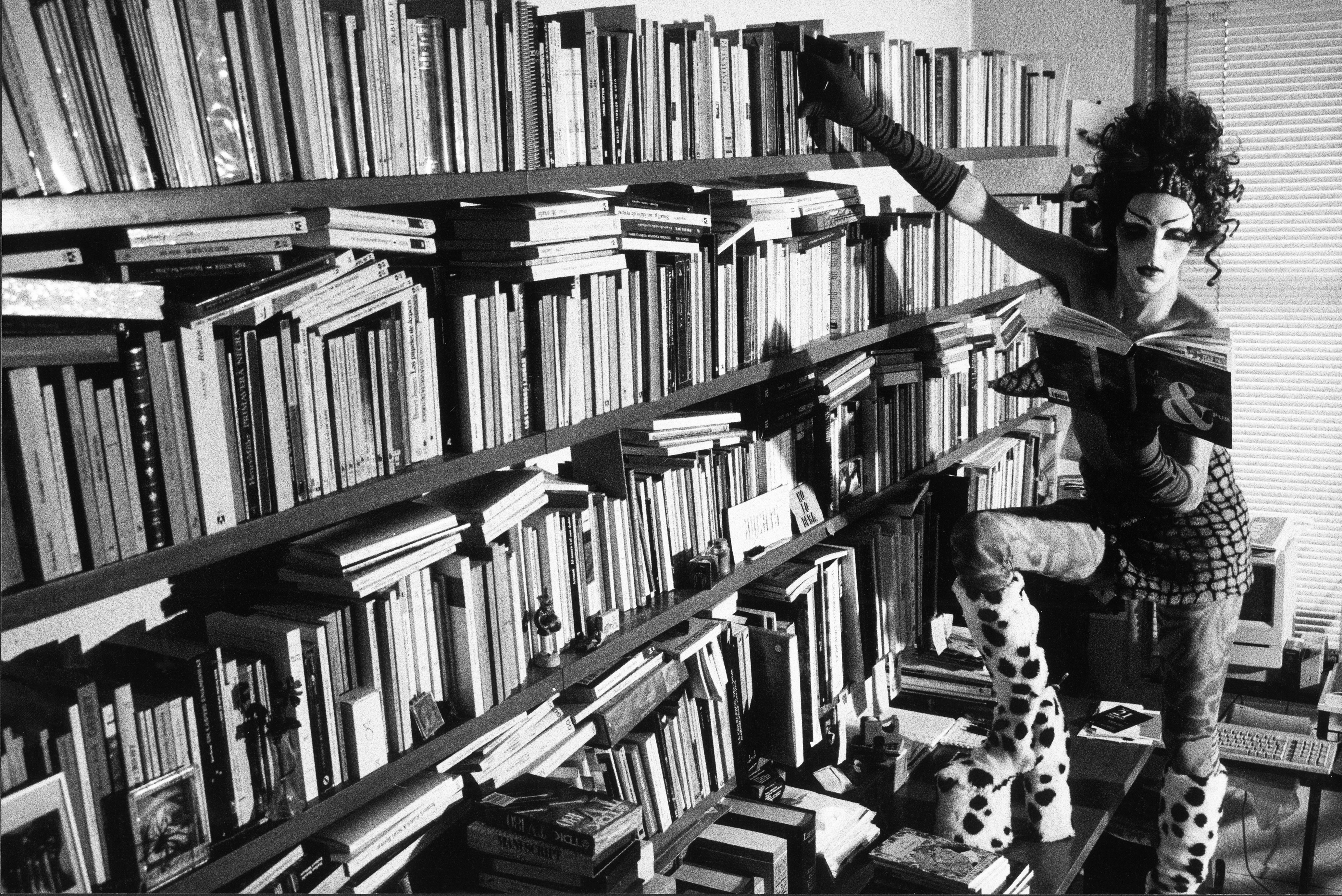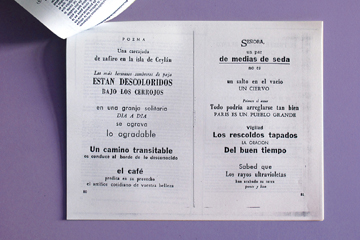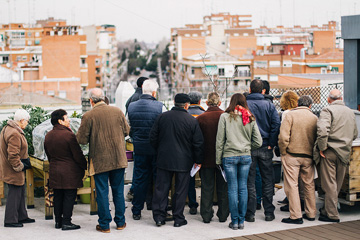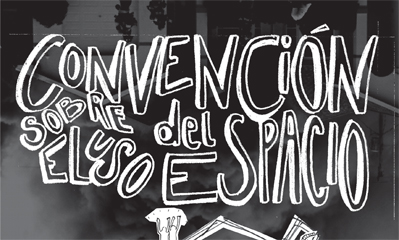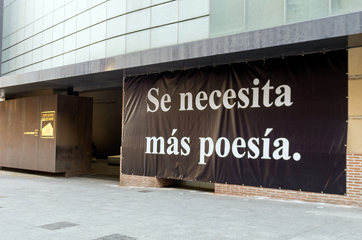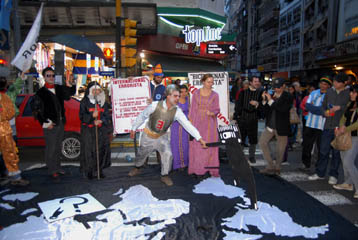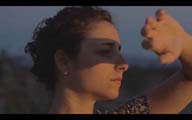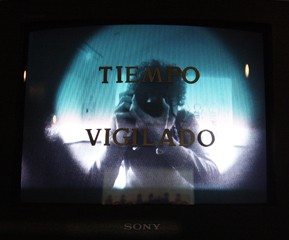International Seminar May 20 to 23
May 23 Forum for Researchers and artists
May 13 to Sept. 27 Exhibition
CA2M organizes the XVI Image Symposium including a conference and debate programme on the subject of Imagine_Historicize.
Within the framework of this programme, an open call is issued inviting participation of researchers and artists. The selected authors will introduce their projects to the public attending, during journeys dedicated to the Forum of the unpublished. Those projects will be published in the book of minutes of the Symposium.
The Image Symposium intended to be a place of discussion and reflection around issues relevant to the setting of the contemporary subject.
Within this frame, history and memory currently have a strength and visibility that goes beyond the academic sphere which constitute a social and cultural hot debate. The official History, single and linear, has been broken into parts to give rise to multiple memories, demands as a mean of identity and, also, as a set of political and cultural values.
Such proliferation of histories, sometimes incompatible, is the result of complex dynamics and societies ever more diverse that consider the past time through memories, remains and monuments as an archeological process ever open. For its part, the global cultures of the images produce a time and space in a continue present, where cohabit all geographies, discourses, disciplines, visual styles and historic periods. All of them, floating and available to reinvent pasts, presents and futures.
With all this, what is the capacity and ethic and political role of the production, retrieval (and destruction and occultation) of images in the construction of history and memory? How do historians use images and how do they face the digital era? How “other histories” transform the hegemonic history written by the modern states with cohesion desire? What visions of the present lie behind the images used by artists? What idea of the future? Those are some of the questions raised in the following journeys by means of lectures, debates from great specialists and a “CA2M Abierto” Forum, for researchers and artists.
CALL
CA2M organizes the XVI Image Symposium including a conference and debate programme on the subject of Imagine_Historicize. Within the framework of this programme, an open call is issued inviting participation of researchers and artists. The selected authors will introduce their projects to the public attending during the journeys of the Forum of the unpublished. Those projects will be published in the book of minutes of the Symposium.
The Call aims to start a forum for debate to projects related to the questions raised before and also to other topics:
- Historians and images. Images: documents of historical evidence or problematic evidence in an irretrievable past?
- Images of memory. Impact of production and destruction of images in the process of constitution of history and memory.
- Other histories. New voices of history through images: imaginary stories.
Requirements: The proposals must include the registration form dully filled in.
- Project on Artistic Theory and Practice. It must be an unpublished project and must have the DIN A4 size; in case of an artistic practice, it should have the presentation of a memory, dossier or portfolio. The investigation essays will have a range between 10 and 15 pages, doble space and Times New Roman 12. Images screening are permitted during lectures.
Projects, both in Spanish and English, are accepted
Uncompleted applications won´t be accepted.
The selected authors who wish to attend the Symposium and reside outside the Region of Madrid may benefit from 150 € as travel expenses (the applicant may enclose in its application any relevant document supporting the proof of place of residence - eg. Resident permit, City Certificate of Registration, a photocopy of student card, electricity or gas bills...).
The documentation from non-selected projects could be collected during the days of the Symposium.
DOCUMENTATION REQUIREMENTS AND REGISTRATION PERIOD
The deadline for receipt of projects is April 15, 2009. Participant may submit the aforesaid documentation:
- By email: download form at www.ca2m.org and send, duly filled in, together with project (in a .doc or .pdf format) to actividades.ca2m@madrid.org. This e-mail address is being protected from spambots. You need JavaScript enabled to view it
- By mail, enclosing the duly filled in registration form together with the printed project (projects arrived later than April 15 will be discarded)
SELECTION
The directors of the Symposium will select a maximum of 10 projects. April 30 it will be published the list of selected participants in the CA2M web page. The selected participants will receive an express communication, which will state the date and time of his/her presentation at CA2M.
For further information actividades.ca2m@madrid.org. This e-mail address is being protected from spambots. You need JavaScript enabled to view it or at 91 276 02 27
It will be positively consider those applications that show rigor, creativity, interdisciplinary and relevancy to the line of work detailed in the call. It won´t be taken into account the order of registration nor the fact of having participated before in previous editions.
SCHEDULE
MAY 20
11,00 h. Opening Hon. Minister of Culture and Sports , Mr. Santiago Fisas Ayxelà.
Presentation Ilma. Director General of Archives, Museums and Libraries, Dña. Isabel Rosell Volart.
Presentation Director of Centro de Arte 2 de Mayo, Ferran Barenblit.
11,15 h. Introduction to the Symposium. Mónica Portillo and Sergio Rubira, Directors of the XVI Image Symposium of the Region of Madrid.
12,00 h. Philippe-Alain Michaud. Art historian and curator of film at the Musée National d'Art Moderne, Paris.
16,00 h. Svetlana Boym. Professor of Slavic and Comparative Literature and Associate Professor at the School of Architecture and Design, Harvard University.
18,00 h. The Otolith Group: Anjalika Sagar (artista, comisaria y escritora, Londres); Kodwo Eshun (artista, escritor, DJ, profesor del Máster en Cultura Visual del Goldsmiths College, University of London).
JUE 21 MAY
11,00 h. Santu Mofokeng. Photographer, Johannesburg.
16,00 h. Rogelio López Cuenca. Artist, Malaga.
18,00 h. Rogelio López Cuenca (artist, Málaga) and Pedro G. Romero (artist, Seville).
MAY 22
11,00 h. Nuria Enguita Mayo. Cultural worker, member of the management team arteypensamiento (Universidad Internacional de Andalucía).
13,00 h. Basilio Martín Patino (Film Director, Madrid) and Aurora Fernández Polanco (Professor of History and Theory of Contemporary Art, Universidad Complutense de Madrid)
16,00 h. Eyal Sivan. Documentary filmmaker, London.
18,00 h. Francesc Torres (artist, Barcelona) and Fernando Sánchez Castillo (artist, Madrid).
MAY 23
11,00 h. CA2M Abierto: Forum for researchers and artists.
17,00 h. Screening of The Specialist, documentary film by Eyal Sivan and Rony Brauman, 1999, 128 minutes, OV subt. Spanish. (1999: Official Selection Berlinale, Berlin, best documentary of the year, Guild of Media Authors (SCAM); best documentary of the year, Adolf Grimme Prize, Germany).
19,15 h. Closing Day
The Museum will provide simultaneous interpreting for the lectures to be conducted in English or French.
Free registration at centrodeartedosdemayo@madrid.org or by phone at 91 276 02 27 as of April 15, 2009
BRIEF BIOGRAPHY OF THE LECTURERS
Svetlana Boym is a writer, theorist and artist, Professor of Slavic and comparative literature, associate professor in the School of Architecture and Design, Harvard University. Author of The Architecture of the Off-Modern (2008), Territories of Terror: Memory and Mythology of the Gulag in Contemporary Russian-American Art (exhibition catalog, 2007) and The Future of Nostalgia (2001).
www.svetlanaboym.com
Nuria Enguita Mayo has been responsible of projects at Fundació Antoni Tapies, Barcelona (1998-2008). She was part of the curatorial team of Manifesta 4 (Frankfurt, 2002). He has worked on numerous projects such as Tour-ismos. La derrota de la disensión (2004) o Culturas de Archivo (2000) and she is a member of the management team of art and thought (Universidad Internacional de Andalucía).
Aurora Fernández Polanco is Professor of History and Theory of Contemporary Art, UCM. Her publications include "Shoah y el debate Lanzman (Moses) / Godard (San Pablo)" in Er (2004), " Historia, montaje e imaginación: sobre imágenes y visibilidades," in Imágenes de la violencia en el arte contemporáneo (2005). Artistic advisor and editor of the exhibition catalog Basilio Martin Patino: Espejos en la niebla -Mirror in the Mist (2008).
Rogelio López Cuenca is an artista who works with contemporary audiovisual material, historical archives and history of art, among others. His work examines the processes of ideological production of identities and histories. Among his projects include: Gitanos de papel (2009); Málaga 1937 (2007), o El Paraíso es de los extraños (2001). He participated in the Johannesburg Biennale, Manifesta 1 (Rotterdam), São Paulo, Lima and Istanbul.
www.malagana.com
Basilio Martín Patino has led Nueve cartas a Berta (1965) or, in hiding, Queridísimos verdugos (1973) and Caudillo (1974). Awarded on numerous occasions, he has presented retrospectives in Bremen, Hamburg, Rome and at MoMA in New York (2007). In 2008, Madrid held his solo exhibition Espejos en la niebla
www.basiliomartinpatino.com
Philippe-Alain Michaud is an art historian and curator of the film collection of the Musée d'Art Moderne, Centre Georges Pompidou, Paris. Author of Sketches: histoire de l'art, cinéma (2006) and Aby Warburg et l'image en mouvement (1998). Curator of Le mouvement des images (Centre Pompidou, 2006-2007) and Comme Le Reve Le dessin (Louvre / Centre Pompidou, 2002).
Santu Mofokeng is a photographer and writer. His work is an investigation into the construction of social identity and history, landscape and memory, especially in the context of the history of South Africa and Apartheid. He has exhibited recently at Rivington Place, London (2009), Iziko-South African National Gallery, Cape Town (2007), Venice Biennale (2007) and Africa Remix (2006-2008). He has participated in Documenta 11, Kassel (2002).
The Otolith Group is composed by Anjalik Sagar-artist, writer and curator, and Kodwo Eshun, writer, artist, DJ and curator, professor of the Master in Visual Culture at Goldsmiths College, London. Their recent projects include: the performance Communists Like Us, and A Long Time Between Suns, two-part exhibition of the films by Otolith, visual essays narrated from investigating the future, past, present and the future itself, mixing fiction, personal files and documentaries, both in London in 2009.
Pedro G. Romero is an artist, editor and researcher, working primarily on two projects: Archivo FX, an extensive file of visual material on the anti-sacramental iconoclasm in Spain between 1845 and 1945, and Máquina P.H., a series of projects on flamenco. He is member of the arteypensamiento team at the International University of Andalusia, where he has coordinated SI, Sevilla Imaginada.
www.fxysudoble.org
Fernando Sánchez Castillo is an artist. His work moves and subverts symbols of power deployed in public spaces. Among his recent exhibitions include: Divertimento, Galería Juana de Aizpuru, Madrid (2009), The Unresolved ... Vleeshal, Holland (2008), 7 +1, MARCO Vigo (2008), and Abajo la inteligencia, MUSAC, Leon (2007). He participated in the Havana Biennial, Bucharest, Istanbul and Sao Paulo.
Eyal Sivan is a documentary filmmaker, producer, essayist and professor of production in the School of Social Sciences and Cultural Studies (East London University). Among his award-winning films stand out: Itsembatsemba, Rwanda one genocide later (2004), Route 181, Fragments of a Journey in Palestine-Israel (2003) and The Specialist (1999), fiction based on file of the trial of Adolf Eichmann and inspired in Eichmann in Jerusalem Hannah Arendt.
Francesc Torres, artist, curator and writer. His work invites a constant reflection on the mechanisms of power, memory, ideology and violence. His work has been exhibited, among others, in: IVAM, Valencia, Bilbao Guggenheim, Fundació Joan Miró, Barcelona: Whitney Museum and MoMA in New York, MNCARS, Madrid, or MACBA, Barcelona, where he conducted a retrospective in 2008, Da Capo.
DIRECTED BY
Mónica Portillo is curator and art critic. From 2002 to 2007 he was director of the department of education and public programs at Mudam Luxembourg. Editor of Le petit Jean de la Ciotat de l'art contemporain (2007), Lamento (2007) and Mark Lewis. Arrêt sur images (2006).
Sergio Rubira is curator and art critic. Associate Professor of History of Contemporary Art, UCM, Madrid. He is part of the cultural production agency RMS La Asociación. He has been deputy director of EXIT publications between 2006 and 2009 and is currently external editor of the photography magazine EXIT.
